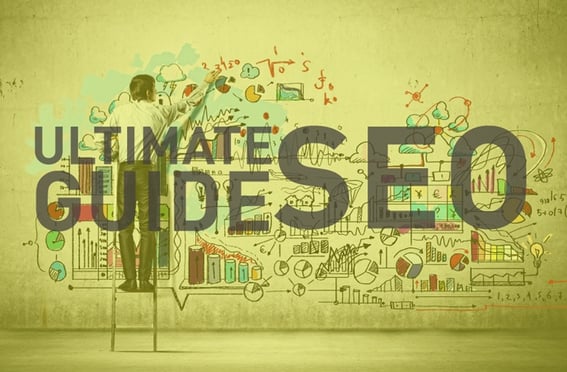What is SEO?


Successfully increasing your company's website visibility is the bread and butter for any business looking to generate more traffic and leads. Getting your product or service noticed regularly by Google's search colossus is as important now as it ever has been.
Google's share of all searches carried out in the UK, according to The Statistics Portal, was a whopping 85 percent in January 2016. And what about the rest of Europe? A report by marketing research firm, PTG Media, has this at more than 90 percent.
With the advent of the Google's 'Mobilegeddon' algorithm, where mobile-device compatible sites are now ranked higher in search results, it's clear that if you haven't already, now is the time to ensure your website is getting the visibility it deserves.
So, What is SEO? Why should you be doing it? How can you do it? And also, when should you be doing it?
What is SEO?

Search Engine Optimisation is simply the art of increasing the organic ranking of your site. It is, in effect, the best way of allowing your customers find you and you them. Search engines work by indexing websites and their content, thus ensuring when a search is made, the most relevant pages are returned.This is to make sure that when searchers are looking for specific information they are presented with the most trust-worthy, relevant and useful pages. Increasing the visibility of your website can be dissected into on-page and off-page SEO:
- On-page SEO is a series of settings you can apply on the website so that it is optimised for search engines. It's something that you can change right away and that will directly influence the visibility of your website.
- Off-page SEO is the authority or popularity of your page as seen by Google and it refers to activities outside the boundaries of the web page. It has the majority share of influence on your organic ranking.
Why should you be doing SEO?
Good SEO campaigns will reduce your need for Pay-per-click advertising and increase the quantity and quality of organic traffic to your site.
According to Sean Si of the Digital Marketing institute, "SEO leads have a 14.6% close rate, while outbound leads have a 1.7% close rate."
This fundamental move towards 'Conversational Searching' presents an opportunity for you to connect with your target audience. Fully optimised for certain long-tail keywords (made of 4+ words), your site will become more visible to your ideal target customers as Google's 'spiders' will index your content as the most relevant to searchers.
SEO also works brilliantly in conjunction with other marketing strategies, such as inbound marketing, which help you not only attract more targeted traffic to your website, but also convert that traffic into leads.
How do you successfully optimise your website for SEO?
An excellent question, with an answer that is multifaceted to say the least, but all important when increasing the visibility of your website.
As mentioned before, on-page and off-page have unequal effects on your organic ranking but - quite crucially - successful off-page can only work with a solid on-page base.
Best practice with on-page SEO:
- CONTENT - we love it, you love it and so does Google. As The Guardian comments, the more content your produce the more Google has to trawl through and the more opportunity you have to fill with long-tail keywords. However ensure its readable and valuable in equal measure.
- TITLE TAGS - this should be full of relevant keywords and phrases. Meta descriptions are also important. Although not directly linked to organic rankings, it will increase your click-through rate as users will see this on the Google Results page.
- HEADINGS - structure your content by using H1/H2/H3 headings, these will show up in Google's trawl of your pages and underline how beautifully structured your content is.
- URL STRUCTURE - make your site easy to read for Google's 'spiders'. Do not use underscores when constructing URL's, dash are far better when breaking up words.
- ALT-TEXT - Google cannot read images, so place alt-text in images to help it.
- SPEED - neither you, I nor Google likes to wait for pages to load. Slow website are penalised accordingly by Google's algorithms.
- SITEMAP - sitemaps and internal links within sites will increase the ability of 'spiders' to successfully trawl you site.
Best practice with off-page SEO:
- LINK BUILDING - increasing the authority of your site comes from the number of strong, valued links on other authoritative websites, which send users back to your site. Quality over quantity is the golden rule with link building campaigns.
- SOCIAL MEDIA - Google looks into the amount of social shares and likes you have had on individual pieces of content to increase the ranking the page.
When should you be doing SEO?
Now! Increasing your website's visibility is a process that takes time, effort and a well thought-out strategy, but producing great content in the form of news or blog articles is a great way of starting.
Identifying keywords - both long-tail and short-tail - is a good step towards understanding who your target audience is, what they are searching for and which content you should be providing them with.
Think not only about what your customers want from your product or service, but which problems they are looking to solve that your company is built to do.
Remember that, although the internet is global, most small firms work in country or area-specific markets. Target these niches rather than looking for number one rankings on a larger, highly competitive scale.
Conclusions
The process of increasing your site's visibility in Google search results and on the web can be started immediately. Social media and blog posts are an excellent way of kick-starting your climb up Google rankings but you must, at all times, be producing natural, relevant and genuinely useful content.
Don't stuff content with keywords. Although you will increase your rankings in the short-term, it will not flow and Google will soon penalise your hastily put together content. SEO and inbound marketing go hand-in-hand, and in time they will put you on the war path to success.
More from Website Visibility

Why You Can No Longer Afford to Ignore Google Adwords!
Take a look at Google. Type something in, type anything in. What do you see, what are the first few positions taken up by? Ads...
Stuffing, Density or Proximity: which keyword optimisation technique should you be following?
Whilst doing some on-page changes for the Purple Frog site last week, I noticed - whilst looking at Google Search Console -...







